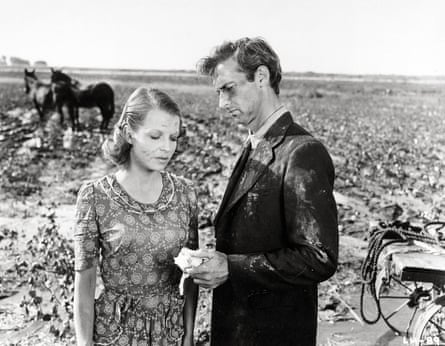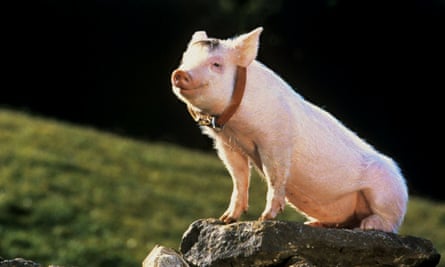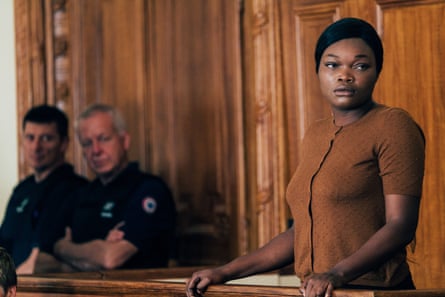We’re officially into spring now, a time when even lifelong city-dwellers like me begin entertaining bucolic views. Satisfying as it is to see daffodils blooming in a London park, the seasonal benefits of new existence and renewed heat are often greatest illustrated in a farming atmosphere.
Which isn’t to over-romanticise the farming globe: Spanish director Carla Simón’s beautiful Alcarràs (2022 now streaming on Mubi and coming to DVD on Monday) surely does not. Earthy and indignant, this portrait of a Catalan peach-farming relatives currently being compelled off the land they’ve held for generations captures the occasional, elemental rewards of agricultural life, but also its punishing grind – and therefore suits into a rich custom of films in which the spectacular stakes, tensions and catharses all derive from the unpredictability of residing off the land.
French director Jean Renoir travelled to The usa to make a single of the excellent illustrations of the form in his 1945 film The Southerner (absolutely free on Plex), in which a Texan cotton-picker sets out to set up his own cotton farm with very little much more than seed in his pocket. It’s an American desire story that Renoir nevertheless de-sentimentalises with a tactile feeling of soil and wrestle. It would pair well, in simple fact, with a a lot more latest tale of forging a potential from absolutely nothing in US farm nation. Drawing inspiration from Willa Cather’s rural immigrant saga My Ántonia, Lee Isaac Chung’s wistful Minari (2021) doubles down on the American aspiration topic by focusing on a household of South Korean immigrants, but doesn’t present them a very simple, rosy path to self-realisation.

Both equally movies are positively idyllic, of training course, up coming to John Ford’s sinewy, sorrowful adaptation of Steinbeck’s The Grapes of Wrath (1940), a Depression-period study of sharecroppers turned migrant workers that doesn’t stint on the novel’s visceral sense of battle – and is effective toward the most conditional of pleased endings as its beleaguered hero’s eyes open to the cause of workers’ legal rights. Foreclosures and flooding are the obstructions impeding a Tennessee farming family members in the underrated, pleasingly classical 1984 saga The River, which presents their plight as equal components tragedy and journey – progressively closing in on the doughty farm wife (a fine Sissy Spacek, oddly paired with Mel Gibson) keeping all the things collectively.
Drifting far from the states, Filipino director Lav Diaz created a single of the vital contemporary farming epics with his gargantuan, experimental 2005 movie Evolution of a Filipino Household (Mubi). Filmed in excess of the training course of a ten years, it charts the variable increase, tumble and increase of an impoverished farming relatives, mapping their fortunes versus that of the Philippines at large. It clocks in at a whopping 10-furthermore hours too: you may possibly choose to treat it as a miniseries. It has hybrid documentary things, nevertheless if you’re after pure nonfiction in your farm movies, seem to the gutsy, stoically going relatives survival examine Troublesome Creek: A Midwestern – a major Sundance winner in the mid-90s – or Andrea Arnold’s latest Cow (absolutely free on BBC iPlayer), an uncompromising bovine-eye see of the dairy farming business.

Not that all this kind of movies (farmadramas, if you will) have to be downbeat. The irresistible speaking-animal fable Babe (1995) continues to be cinema’s fantastic instance (in the ongoing absence of a great Charlotte’s World wide web adaptation) of a farm location as a playground for childhood whimsy. The wordless, deadpan slapstick of Aardman’s wonderful Shaun the Sheep Motion picture (2015) can take that to a sillier put nonetheless.
For older people, farm life serves as a mere cosy backdrop to the daffy, horny entanglements of English eccentrics in John Schlesinger’s manic 1995 movie variation of Stella Gibbons’s Cold Comfort and ease Farm (cost-free on ITVX), although Francis Lee’s Yorkshire sheep-farmer romance God’s Possess Country (2017) serves up substantially more realism in its portrayal of windswept lifestyle on the moors, but does not let temperature or hardship get in the way of a coronary heart-inflammation content ending.
All titles are offered to hire on various platforms except usually specified
Also new on streaming and DVD
Saint Omer
(Mubi)
Alice Diop’s enthralling initially foray into fiction movie-earning – albeit conscientiously inspired by serious events – considerably rethinks the standard procedures and perspectives of the courtroom drama genre. Unpacking the racial and cultural biases at perform in the situation of a French-Senegalese woman on trial for killing her toddler boy or girl, it forgoes speechifying and grandstanding for a lot more complicit, empathic conceptions of justice and guilt.

No Bears
(Picturehouse)
Embattled Iranian director Jafar Panahi produced and premiered this dense, advanced fusion of tangled connection analyze, rageful cry against the Iranian authorities and metafictional interrogation of his own movie-creating course of action before his the latest starvation strike and subsequent release from prison, but it performs all the additional powerfully in the wake of all those functions.
Bluebeard’s Eighth Spouse
(Indicator)
A shiny, restricted version Blu-ray release for this delightful, nimble-witted marital farce from 1938. Its trifling tale of an oft-married playboy’s newest trophy spouse scheming to stick all over is directed by Ernst Lubitsch and co-written by Billy Wilder with equivalent vim and zip, when Claudette Colbert and Gary Cooper’s chemistry retains it all airily afloat.

